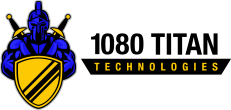In today’s business, sharing files is easy and something many workers take for granted. Unfortunately, not all file-sharing methods are secure. When efficiency is prioritized over security, it can often lead to extremely troublesome situations. For this week’s tip, we thought we’d go through a half dozen practices you can take to ensure your files get to where you need them to get safely and securely.
Use a VPN
The Virtual Private Network is a key tool when it comes to securing your data flow. It allows users to use public Wi-Fi, many of which are more than sketchy connections, to safely and securely transmit data. Many public Wi-Fi connections leave users exposed and with a VPN, you have an encrypted portal that makes intercepting data highly unlikely.
Thorough Password Management
Not only do you need to understand how to concoct a secure password and reliably protect your accounts with solid password practices, you should also consider using a password manager to store your passwords. Not only does a password manager make it almost impossible for hackers to access your passwords, you can also stretch a buck if you need to use shared passwords. There are a lot of them to choose from and the professional consultants at 1080 Titan Technologies can help you set up a solution to ensure that your accounts are protected.
Control File Access
One of the best ways to ensure that files are secure is to maintain control over the permissions of them. One of the easiest ways to do this is by assigning groups that can access certain files or file types. You can set permissions by department, but you can also just set up groups that have users in them who need access to the files. Since not everyone needs access to every single file, controlling users’ access is one of the best ways to keep your files and file storage secure.
Set Up and Enforce Use of Multi-Factor Authentication (MFA/2FA)
Multi-factor authentication (or two-factor authentication) is a security step that requires any user to prove their identity before logging into a particular system. MFA uses multiple authorization methods to verify their identity. They do this in three ways:
- Proof of knowledge - A password or PIN that only the user knows
- Proof of possession - A key of some sort, typically an authentication key sent via mobile device.
- Proof of existence - A key using biometric data or voice recognition.
Making users prove they are who they say they are is a solid practice to secure your data, but it is important to limit your efforts as to not put too many redundant barriers between your data and your users.
Ensure Your File Sharing Fits In
As important as file sharing can be, it also can cause some problems if the solution you choose doesn’t fit into your overall security strategy. There are all types of options on the market and the one that you choose needs to fit into your overarching security posture. File sharing is only one facet of your business that needs to be secured, so as to not leave your business vulnerable, ensuring that any file sharing platform you choose to use fits in with all your other security efforts is a must.
Here are some types, for example:
- Sending encrypted attachments via email
- Sharing links to public or private files in the cloud
- Establishing shared folders or collaborative spaces either online or by syncing information from one location to another
Train Your Staff
Like any other part of your business, the people that use a piece of technology need to be sufficiently trained on how to use it to ensure that its features are used properly. Most hosted platforms are going to take some getting used to for your staff; there is no way around it. That’s why you should get out in front of it and provide the necessary training that will get your people up to speed faster. The more they know, the more secure your files and your file sharing will be.
At 1080 Titan Technologies, we work with Atlanta companies that require dedicated IT services and support to keep their business secure and running efficiently. If you would like to get some insight about enterprise file sharing from our IT professionals, give us a call today at (404) 800-7946.



